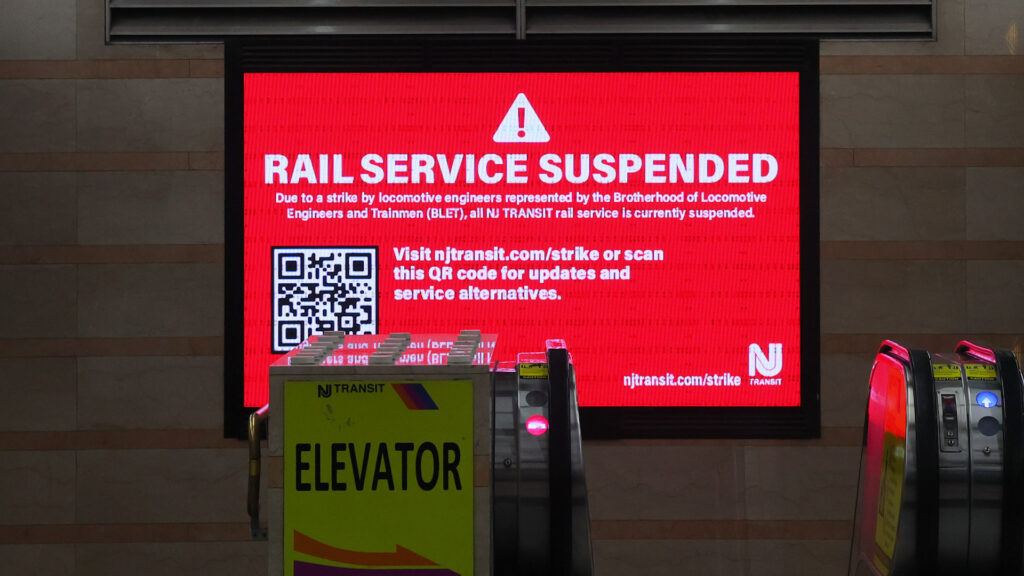New Jersey Transit rail service will resume Tuesday, May 20, following a tentative labor agreement that ended a four-day strike by locomotive engineers. The strike began early Friday, May 16, and halted train operations for approximately 100,000 daily riders, affecting routes across New Jersey, into New York City and to Newark Liberty International Airport.
Unbiased. Straight Facts.TM
NJ Transit and the engineers’ union reached a preliminary agreement to end the first statewide rail strike in 40 years.

Although the union initially announced service could restart Monday, May 19, NJ Transit officials said a 24-hour window was necessary to inspect tracks and equipment before safely resuming full operations.
What caused the NJ Transit engineers strike?
The Brotherhood of Locomotive Engineers and Trainmen (BLET), representing about 450 engineers and trainees, walked off after wage negotiations broke down. It was New Jersey’s first rail strike in over 40 years. The union argued that engineers’ pay lagged behind their peers at Amtrak and the Long Island Rail Road. NJ Transit disputed the union’s figures, claiming average engineer earnings already exceeded $135,000 annually.
Negotiators reached a preliminary deal on Sunday, May 18. Though specific figures have not been disclosed, BLET officials said the agreement improves hourly pay beyond the offer previously rejected by members. The deal still requires union ratification and final approval by NJ Transit’s board on June 11.
NJ TRANSIT & the BLET have announced a tentative agreement.
NJ TRANSIT train service will resume tomorrow, May 20, as it takes approximately 24 hours to inspect and prepare the infrastructure before returning to full scheduled service.
Details at https://t.co/hsrVZbBziS pic.twitter.com/7ZUc7wC7cb
— NJ TRANSIT (@NJTRANSIT) May 19, 2025
What backup options were available during the disruption?
On Monday, May 19, NJ Transit implemented a contingency plan that included supplemental bus service from four designated park-and-ride locations in Secaucus, Hamilton, Woodbridge and Holmdel. NJ Transit continued cross-honoring, allowing riders to use valid rail tickets on its buses and light rail, but not on Amtrak, PATH or ferry services.
NJ Transit added peak-hour capacity to several existing bus routes to and from New York and strongly encouraged riders to work from home if possible.
How are officials responding to the deal?
New Jersey Gov. Phil Murphy called the outcome “a very good one,” praising both sides for crafting an agreement that is “fair to NJ Transit’s employees while also being affordable for our state’s commuters and taxpayers.”
NJ Transit President and CEO Kris Kolluri said work rule changes will cover the new wage terms instead of raising fares. “We will never compromise the safety of our riders,” he added, citing the 24-hour inspection period as a necessary precaution.
The last NJ Transit strike occurred in 1983 and lasted three weeks.
contributed to this report.


